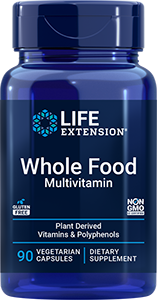
Plant-Based Milks Buying Guide: Are They Good For You?
Published: August 2022
Back in the 1950s, it was pretty common to drink entire glasses of cow's milk as a beverage. Today, not so much. The plant-based milk industry continues to grow with the projected potential to reach $62 billion by 2030, up from $23 billion in 2020. Consumers are drinking non-dairy alternatives in their coffee, cereal, using it to make smoothies, and as ingredients in baking, cooking, desserts like vegan nice cream – you name it. Almond, oat, soy and coconut milk are some of the highest-selling plant-milks worldwide.
But are these non-dairy alternatives actually healthier than the real deal? And which plant-based milk is the healthiest? Let's explore everything you need to know about these increasingly popular beverages.
What is plant-based milk?
Plant-based milks are non-dairy milk alternatives made primarily from nuts, seeds, grains, and legumes. Ultimately, non-dairy milk alternatives are really just plant extracts, made by soaking and blending plants with water, or other methods, and sometimes with other added ingredients, to form a white drink resembling milk. Some of these plant-derived beverages have characteristics that more closely resemble cow's milk than others—more on that below!
Who drinks plant-based milk?
Vegans, vegetarians and flexitarians make up a big portion of the market for non-dairy milk. Additionally, people who can't drink milk for health reasons will choose non-dairy options. People who avoid lactose may opt for a plant-based milk, or choose a cow's milk that has the lactase enzyme added in to help them break down this dairy sugar.
Plant-based milks vs dairy milk: Are they equally healthy?
Milk-producing animals include cows, goats, sheep, buffalo and camels. Humans can consume all of these animal-derived milks (you can even catch the chefs on the latest season of "Iron Chef: Quest for an Iron Legend" cook with these milks), but cow's milk is the most common type of dairy milk consumed by humans and will be the focus of comparison throughout this article when dairy milk is mentioned.
So how does cow's milk compare to plant milks? The vitamin and mineral content of both plant-based milks and dairy milks will vary by brand and production regions, as well as fortification methods. Macronutrients—protein, fat and carbohydrate content—will also vary.
That being said, when we compare dairy and non-dairy milks head-to-head, there are clearly some "winners":
Healthy fats—Winner: Plant-based milks
. While many people are interested in reducing the amount of dairy milk fat from their diet and opt for some of the lower fat choices like reduced, 2%, or skim instead of whole, there is a reason why higher fat content is favorable when it comes to versatility of milks. However, plant-based milks like soy and cashew have more monounsaturated "healthier" fats. Coconut milk is the outlier when it comes to saturated fat content.Protein—Winner: Cow's milk
. When it comes to protein content, it's hard to contend with cow's milk, which offers 8 g per glass. Pea milk and soy milk come close, with some brands matching that of cow's milk with 8 grams of protein per serving. The grain-based milks like oat and rice tend to have the least protein per serving. Although some of the nut milks, like almond, are also low in protein. And unfortunately, certain plant proteins are not as bioavailable compared to animal protein due to fibrous coverings that are hard to digest. If you are using your plant-based milk for a smoothie, you can always add in a plant-based protein powder such as Wellness Code® Plant Protein Complete & Amino Acid Complex (Vanilla) to increase the overall protein content.Calories—Winner: Plant-based milks
. Plant-based beverages generally score well in terms of not containing high calories. Comparing an 8 oz glass of skim milk to the same size serving of unsweetened almond milk, you're looking at 90 calories vs. 30 calories.Added sugars and sodium—Winner: Cow's milk
. Products labeled as dairy milk do not have added sugars or sodium (chocolate milk, on the other hand, has quite a bit of added sugar.) Plant-based beverages generally score well in terms of not containing high levels of sodium, but not so much when it comes to added sugar. That being said, most plant-based milks have a plain variety, which is generally free of added sugars (but possibly less palatable).Overall nutrition—Toss up
. Cow's milk provides 13 essential nutrients including: protein, calcium, potassium, vitamins A and D and four B vitamins—B12, riboflavin, pantothenic acid and niacin. Most of these nutrients are naturally found in milk; however, milk is usually fortified with vitamins A and D. Vitamin A content can vary based on the fat content of your milk, so it is added back into low fat milk. Vegans and non-vegans alike need to make an effort to get more vitamin D.
How does this compare to plant milks? According to one study, the majority of milk alternatives lack a robust nutritional profile when compared to bovine (cow) milk; however they may contain functionally active components with health promoting properties. For example, beta-glucan is found in oats and isoflavones in soy.
One study found that soy milk had about double the amount of folate and vitamin B12 than cow's milk (in addition to comparable protein and calcium content). Interestingly, fortified soymilk is the only nondairy alternative recommended in the 2020–2025 Dietary Guidelines for Americans because it comes closest to matching the nutrition profile and nutrient density of cow's milk.
Do plant-based milks have calcium?
Yes. A study that examined the nutritional contents of 148 plant-based dairy milk alternatives, including 60 beverages (22 brands) from the USA, found that over half of the beverages were fortified with calcium to levels equal to or greater than that of dairy milk. Another study that looked at 51 non-dairy plant-based beverages found that 73% of tested beverages were fortified with calcium.
Should We Call it "Milk" or "Mylk"?
Forget the "Got Milk?" advertising campaign—a number of agencies and lobby groups want it to be known that plant based non-dairy beverages are not milk! The U.S. Food and Drug Administration, National Milk Producers Federation, and European Union have all challenged manufacturers who use the word "milk" to describe a non-dairy product. That's because, by definition, milk is "an opaque white fluid rich in fat and protein, secreted by female mammals for the nourishment of their young."
In fact, some plant-based milk companies and food establishments have opted to use the term "mylk" on their labels and menus, instead of milk, to avoid misleading consumers due to scrutiny from these organizations.
Are plant-based milks good for you?
In their whole form, plant foods like nuts, seeds and grains are generally good for us, especially when consumed in the right amounts. Due to processing, their milky counterparts may not be as nutritious. The nutrition content across plant milks varies, so some are better choices than others. That's why it's always important to read the label for nutritional information and check out the ingredient list (be on the lookout for added sugars and artificial ingredients).
Explore Our Best General Health & Wellness Supplements
9 popular plant-based milks
Wondering what your non-dairy options are? Here are the most popular vegan milks on the market today.
Almond milk
– One of the most popular of all the alt-milks, but also low calorie, low protein, and low fat. Almond milk has a nutty flavor, and a somewhat watery consistency. Almond milk tends to be a good choice for baked goods.Oat milk
– Also gaining in popularity in most recent years because of its taste and thick & creamy texture. The flavor profile of oat milk pairs well with coffee.Soy milk (aka "Soya" milk)
– This is one of the most nutritious vegan options, with about 8 g of protein and greater bioavailability than other alt milks. Soy milk has a thick and creamy texture that makes it perfect in your latte.Coconut milk
– Creamy and sometimes found in cans, this sweet, tropical milk works well in smoothies, soups and curries.Rice milk
– This one's a bit watery, starchy, and very low in protein. It's a good choice if you want a low-fat plant-based milk.Cashew milk
– This tasty vegan milk offers 4-5 g of protein per serving; it's also one of the higher calorie alt milks on the market.Hemp milk
– Hemp milk has a similar nutrition profile compared with cashew milk. The flavor is a bit nutty, might not be the best one to drink a glass of by itself, but blends well in a smoothie and offers a vegan source of omega-3.Macadamia milk
– Like coconut milk, will have a bit higher saturated fat content compared to other plant milks. Some manufacturers add pea protein to increase the overall protein content of the beverage.Pea milk
– If you didn't think peas were a protein source, we've got news for you—pea milk packs in around 8 g of protein, depending on the brand.
Some other plant-based milk options include flax milk, pistachio milk, hazelnut milk, walnut milk, banana milk and potato milk.
Are plant-based milks better for the environment?
In some ways, plant-based milk production may be better for the environment, and sustainability is important to consumers. The dairy industry is somewhat notorious for its environmental consequences, mainly from greenhouse gas emissions, water usage, and land requirements—although, the dairy industry is making efforts to be more sustainable.
However, almond and rice milks require a lot of water, soy and oat milks have land usage requirements similar to cows milk, and coconut cultivation can be problematic to wildlife habitats. Although both cow's milk and oat milk used a similar amount of land, according to research, plant-based milk (oat in this case) can offer environmental benefits such as less greenhouse gas emissions.
Does plant-based milk go bad?
If you thought plant-based milk has a longer shelf life than dairy milk, we have news for you: this isn't always the case! You'll notice that many plant-based milks have a note on the label that reads "best used within 7 days after opening." Store bought plant milks may last a little bit longer than homemade plant milks. Factors include any additives or pasteurization processes that the store-bought plant milks have gone through – these can extend shelf life. At home, bacteria can be introduced more readily such as in the container you use to store your plant milk.
Can you have dairy milk on a plant-based diet?
It depends on what type of plant-based diet you follow. Dairy milk would not be suitable for vegan diets, but may be included in certain types of vegetarian diets including lacto-vegetarian and flexitarian eating patterns.
Should you be concerned about additives in plant-based milk?
To turn a plant into a beverage, processing is required, and in many cases preservatives, flavorings, thickeners, emulsifiers or other additives are added. To yield a mouthfeel similar to cow's milk, several issues need to be resolved, including grittiness, separation of solids and thin, watery consistency.
Emulsifiers and thickeners are commonly used to keep fat and water from separating and solids from settling on the bottom of beverage cartons. Gums and starches or fibers can help create a thicker beverage. These additives are generally safe, up to certain amounts, though some have been linked to digestive discomfort.
How to choose a healthy plant-based milk? Pro tips
With so many options available, you may be wondering, is one of them a superior choice? What criteria would make it best? Nutritional profile? Its ability to froth in your coffee? Yield the best texture during baking? Price point? And perhaps the most important to some: taste! (But, of course, taste is somewhat subjective.) Really, all of these things matter. Some more than others, depending on who you ask.
So here's a rundown on which milks are the best, depending on your goal:
- Best non-dairy milk for coffee: Let's talk about food science as it relates to a sacred topic: your morning coffee. Casein, one of the proteins found in milk, is what helps baristas get that foam atop your coffee. More protein content = more foam. Although plant milks do not contain casein, the ones with a higher protein content will also help form that foam so many desire. You may have even seen barista versions of your favorite plant-based milks, this means extra protein and/or fat content has been added to help give these milks an ability to foam! Milks or mylks with a higher fat content are a good choice if you want fun latte art, because it will make for a more stable foam.
- Best non-dairy milk for baking: As for using a non-dairy milk in a cake or cookies, baking with different milks may impact density and taste. It's going to be trial and error until you find exactly the right consistency, though almond milk is a popular option for baking.
- Most affordable non-dairy milk: Price is an important consideration as well. When it comes to cost of plant-based milks, almond and soy tend to be the most affordable on average, depending on the brand, while oat and pea milk are more expensive. This may have to do with how long they have been on the market, since the latter two are newer. Supply and demand, of course, is going to play a role—the more options you can choose from (and there are many soy and almond milks!) the lower the price point tends to be.
These criteria aside, you should apply the same rule of thumb that you would use for any packaged food: look for minimal ingredients to avoid added sugars, artificial flavors, preservatives, and synthetic fats.
So next time you order a coffee or turmeric latte from your local café and are asked which type of milk you would like, what will you choose?
References
- Ball, Serena. "A Bevy of Milk Alternatives." Food & Nutrition, May 2022, https://foodandnutrition.org/from-the-magazine/a-bevy-of-milk-alternatives/
- Browne, Michael. "Plant-based foods are here to stay—and grow." Supermarket News, August 2021, https://www.supermarketnews.com/organic-natural/plant-based-foods-are-here-stay-and-grow
- Collard, Kalyn M et al. "A Nutritional Comparison of Cow's Milk and Alternative Milk Products." Acad Pediatr., August 2021, https://pubmed.ncbi.nlm.nih.gov/33373745/
- Craig, Winston J. et al. "International Analysis of the Nutritional Content and a Review of Health Benefits of Non-Dairy Plant-Based Beverages." Nutrients, March 2021, https://www.ncbi.nlm.nih.gov/pmc/articles/PMC7999853/
- Craig, Winston J. et al. "Nutritional Content and Health Profile of Single-Serve Non-Dairy Plant-Based Beverages." Nutrients, January 2022, https://www.ncbi.nlm.nih.gov/pmc/articles/PMC8747653/
- Hermann, Mindy, MBA, RDN. "Plant-Based Milks" Today's Dietitian, May 2021, https://www.todaysdietitian.com/newarchives/0521p26.shtml
- Rinninella, Emanuele et al. "Food Additives, Gut Microbiota, and Irritable Bowel Syndrome: A Hidden Track." Int J Environ Res Public Health, November 2020, https://pubmed.ncbi.nlm.nih.gov/33260947/
- "Battle Milk." IMDB, https://m.imdb.com/title/tt19884870/?ref_=m_ttep_ep_ep3
- "Functional components of plant-based milk alternatives and their health benefits." https://www.ncbi.nlm.nih.gov/pmc/articles/PMC5069255/table/Tab1/?report=objectonly
- "Milk: Nutrition Facts and Health Benefits." Undeniably Dairy, https://www.usdairy.com/dairy-nutrition/products/milk
Like what you read?
Please subscribe to get email updates on this blog.









